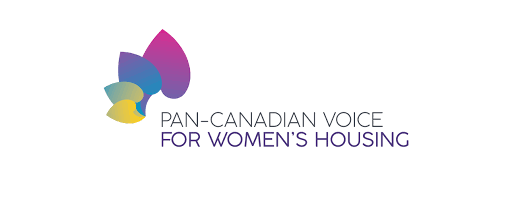By Chevi Rabbit, Local Journalism Initiative Reporter
(ANNews) – This year’s National Housing Day – held on November 22 – was more important than ever as COVID-19 has exacerbated all existing social and economic conditions. It was also a day of reflection and an opportunity for leaders to commit to solutions to ending homelessness, once and for all.
Six calls to action and solutions were developed by the Pan Canadian Voice for Women’s Housing Symposium (PCVWHS), which were presented last month to Canadian Mortgage Housing Corporation (CMHC).
The PCVWHS is a national-in-scope project by the Atira Women’s Resource Society that was born out of an annual symposium for women across Canada, where discussions focus on housing policy with an intersectional lens and a goal to make women-focused housing a priority. Atira is dedicated to supporting women and children affected by violence by offering safe and supportive housing and by delivering education and advocacy aimed at ending all forms of gendered violence. The symposium has been held annually since 2017.
Outside of my work as a journalist for Alberta Native News, I sit on several committees such as the Alberta RCMP Diversity committee, the Alberta Hate Crimes committee, the Aboriginal Professional Women’s Association, Maskwacis Two Spirit committee and I manage “Hate to Hope” community initiatives.
This dedication to equality and equity extend to my role as an advisory committee member for the PCVWHS. In 2019, I was the only Alberta participant. In 2020, the discussions took place online due to the pandemic. In 2021, I was part of the PCVWHS planning committee for the virtual conference.
The overall experience helped me realize the importance of access to safe and affordable housing. It’s vital that all levels of governments, Cree Nations and Metis communities work together to ensure safe affordable housing is a priority.
The recommendations created by the PCVWHS were presented to the CMHC to inform the National Housing Strategy. Here are the updates and commitments by CMHC to the PCVWHS:
1. Call to action – Put in place an appropriately compensated council with lived expertise for CMHC to call on for advice and input.
Response: CMHC acknowledged and has since received over 400 applications for this initiative.
2. Call to action – Challenge government to ensure First Nations, Métis and Inuit women have safe homes; provide adequate funding in the North and for urban (off-reserve) housing.
Response: CMHC has agreed to remain an active partner in co-developing distinct housing for First Nations, Métis, and Inuit women, stating they will further develop an indigenous housing strategy in partnership with First Nations, Métis, and Inuit women with the plan to hand over the operation of housing to First Nations, Métis and Inuit women once completed. CMHC ensures it is educating its staff on the importance of reconciliation and reparations and has recently launched an expression of interest for an indigenous advisory council to guide the symposium’s work.
3. Call to action – CMHC must reinstate the Shelter Enhancement Program and make the program available to women’s organizations on and off-reserve.
4. Call to action: CMHC must address the lack of transparency in provincial and territorial government spending and hold the government accountable for the same.
Response: CMHC has launched a $1B rapid housing initiative with an intent to build more than 3,000 homes with the help of the provinces, territories, and municipalities. The fund can be used to build housing or buy buildings. Applications that would serve urban First Nations, Métis, and Inuit people are being prioritized. Flexibility to allow for exemptions to the 12-month timeframe between being granted the funding and completion of the project have been accounted for. Additionally, in May, CHMC was able to fund 12 new women’s shelters for five years.
5. Call to action – Recognizing that advocating for a Guaranteed Annual Income is not CMHC’s main area of influence, the call for accountability, a compensated panel of those with LE who can work with the group to develop a framework, metrics, and accountability measures to report back annually and reduce silos.
Response: CMHC launched the Canada housing benefit wherein $4B in rent supplement support will go directly to households across Canada.
6. Call to action – Long-term, multi-year funding is required for women-serving organizations to work collaboratively and help CMHC achieve its targets related to women’s housing, as support services and well-compensated social workers are essential to ensure vulnerable women remain housed.
Response: CMHC agreed to deliver programs to fund buildings and has required provincial, territorial and other community partners to provide the wrap-around services
women need.
2020 commitments from CMHC
CMHC is committed to continuing its funding for the Symposium. It’s offered a continuing commitment that the concerns raised at the Symposium will be considered and have a significant influence on policy and funding decisions. Quality attempts will be made to recognize the need to develop deeper connections with all marginalized communities given the level of discrimination faced.
CMHC is committed to using funds effectively to develop projects with community organizations in rural areas, especially the north. It has offered continued accountability to the symposium with a commitment to discuss with internal teams and report on policies and funding more transparently and share progress on the eight commitments undertaken by CMHC on anti-racism.
For more information visit: www.atira.bc.ca
Source: https://atira.bc.ca/wp-content/uploads/Pan-Canadian-Symposium-2020-Report.pdf



Be the first to comment on " Pan Canadian Voice for Women’s Housing develop six calls to actions"